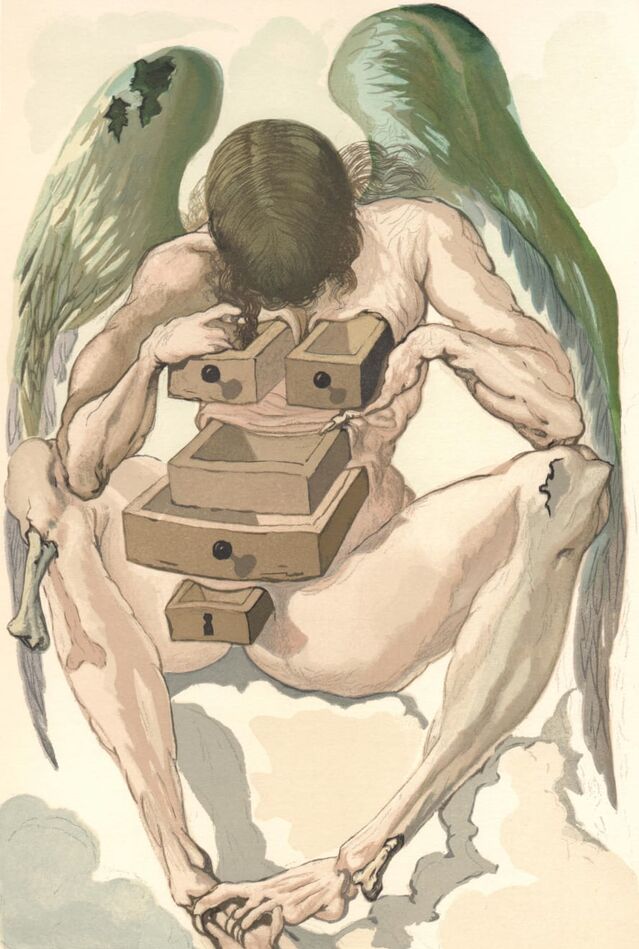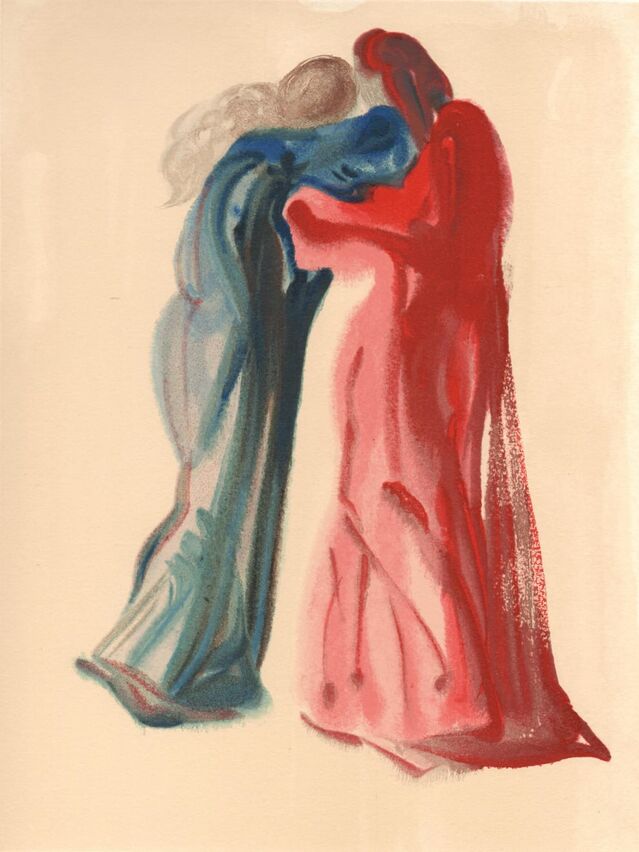Health
Happy 2022! To Heaven Through Hell?
What happened when Dalí met Dante in my hot tub.
Posted January 3, 2022 Reviewed by Lybi Ma
COVID is what happens when you’re busy planning your new year's celebration in an outdoor hot tub. I started my last morning of 2021 getting a positive note—from an unfortunate source, the NYS Department of Health. I guess I couldn’t have asked for a more fitting conclusion to the year, or rather of the past two years, as China wrapped up 2019 by disclosing its recent export.
The blessings of globalization aside, no hot tub around me, but a fierce whirlpool inside my body, I’m not sure my mishap counts as sufficiently ironic, but it certainly feels comic. Sure, not exactly on a divine comedy scale, but possibly close enough to reflect upon it, since 2021 was also the 700th anniversary of the death of Dante Alighieri.
But celebrating birth beats death—and in 1950, on the 700th anniversary of Dante’s earthly entry, the Italian government made an odd move. Possibly trying to outbid the Pope, who had allowed the irreverent Salvador Dalí to paint the Immaculate Conception, the Italian government commissioned Dalí to illustrate the delubrum of Italian literature: Dante’s "Divine Comedy." The government then quickly recoiled, but the surrealist painter—always battling with his own demons and angels—was already underway to hell, purgatory, and paradise, in 100 watercolor illustrations.

“When halfway through the journey of our life / I found that I was in a dark wood, / because the path which led aright was lost,” begins Dante in what many consider the onset of the Renaissance. Less so for Dalí.
However halfway through his own life, Dali’s first illustration shows no lost path: the way “aright” is as clear as can be. Instead, Dalí’s Dante (or likely Dalí himself), seems to deliberately turn his back to that straight lane, casting-crossing his long shadow upon it, as if defiantly declaring from the outset: I have not lost my way; I choose to enter that dark forest.
Dalí, like Dante, may have realized that the path to heaven goes through hell. But as dreamers often do, Dalí dared without fully realizing what lies before him. Spending the next decade drawing his divine dreamscape, Dalí headed towards a forest he imagined as more benign than it turned out to be.
With 33 cantos in each of the realms—Hell, Purgatory, and Paradise—the first is a delirium of horrors. In one particularly low pit, Dante visits the Hypocrites, who cloak their malign character in a virtuous guise. Their punishment fits well: they get to keep their dazzling cloaks, which become lead-heavy instruments of torture, forcing them to retain their faux decorous mask, while affixing them to the ground.

Getting out of hell, and into Purgatory, Dante and Virgil meet Cato of Utica, who explains to the two poets the procedure of external purification, washing hell with the dew of a new morning. But Cato carries his own baggage, and Dalí turns the scene outside-in, with a striking image of “The Fallen Angel,” who painfully introspects the drawers of his own soul—memories, secrets, and regrets (and find them empty?).

Then comes a beautiful moment, still in Purgatory, when Dante and Beatrice finally meet. With great care, they lean on each other. Their red and blue do not exclude one another, but choose each other, touch and blend to be together.

Later, in Paradise, they both, like other souls around them, reach out for the light, and transcendence, confirming Dante’s concluding words on “the Love that moves the sun and other stars.”

Look up above, and around you, you might reach the same conclusion. Happy 2022!
References
Dupont, Christian Y. (2020), From Poetics to Phenomenology: Consciousness in Dante’s Divine Comedy, New York: Routledge.


